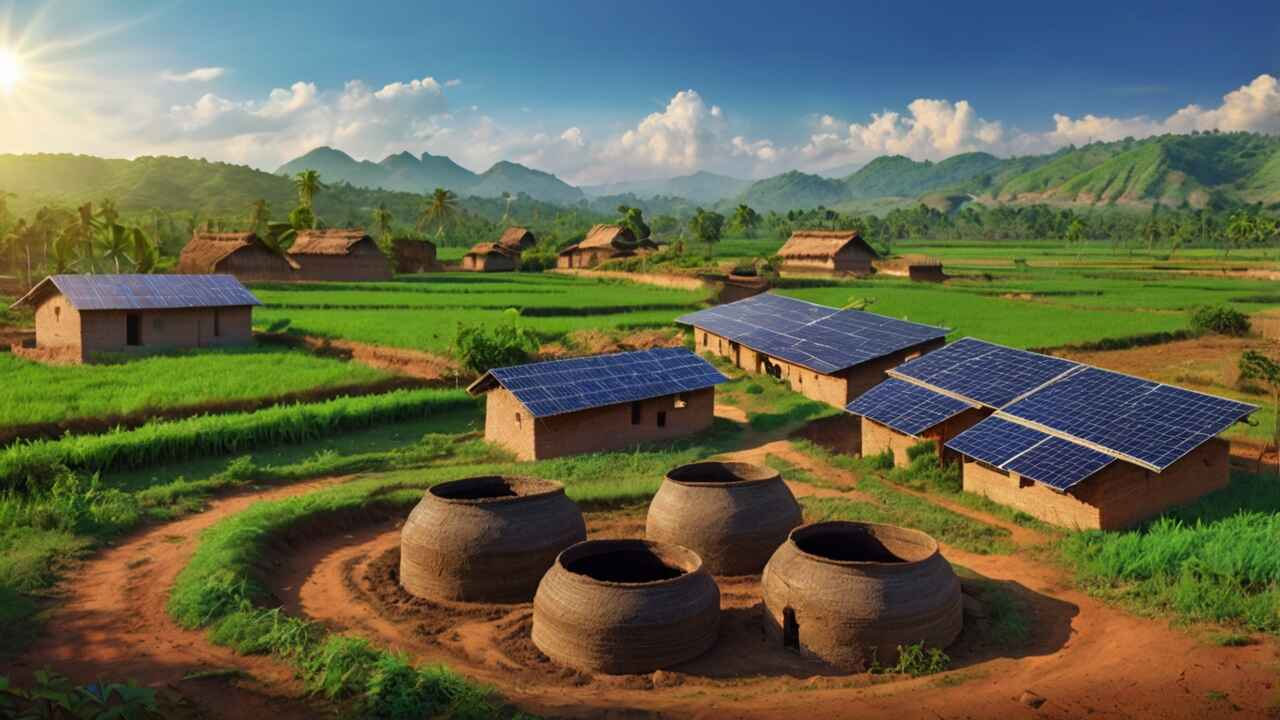A Step Towards Net Zero

Introduction
India, a nation striving for sustainable development, is increasingly exploring renewable energy sources to reduce its reliance on fossil fuels and achieve its net-zero emissions goals. Among these, biomass briquettes have emerged as a promising solution, offering a cleaner and more efficient alternative to traditional fuels like coal and wood.
What are Biomass Briquettes?
Biomass briquettes are compressed blocks of agricultural and forestry residues, such as rice husks, sugarcane bagasse, and wood shavings. These residues, often considered waste, are transformed into a valuable fuel source through a process of drying, crushing, and compressing.
The Benefits of Biomass Briquettes:
- Reduced Carbon Emissions: Biomass briquettes, when sourced sustainably, can significantly reduce greenhouse gas emissions compared to fossil fuels.
- Improved Air Quality: Burning biomass briquettes releases fewer pollutants, such as particulate matter and sulfur dioxide, leading to cleaner air.
- Waste Management: By utilizing agricultural and forestry residues, biomass briquettes contribute to sustainable waste management practices.
- Energy Security: Biomass briquettes can help reduce dependence on imported fossil fuels, enhancing energy security.
- Rural Economic Development: The production and utilization of biomass briquettes can create employment opportunities in rural areas.
Government Initiatives in India
The Indian government has recognized the potential of biomass briquettes and has implemented several initiatives to promote their adoption:
- Ministry of New and Renewable Energy (MNRE) Programs:
- National Bioenergy Programme: This program aims to promote the use of biomass for energy generation, including biomass briquettes.
- Biomass Programme: This program specifically targets the production of briquettes and pellets, offering financial incentives and technical support.
- State-Level Policies:
- Many Indian states have implemented their own policies to encourage the use of biomass briquettes, including subsidies, tax breaks, and awareness campaigns.
Challenges and Future Outlook
Despite the numerous benefits, the widespread adoption of biomass briquettes in India faces several challenges:
- Lack of Awareness: Many people, especially in rural areas, are unaware of the benefits of biomass briquettes.
- Technical Challenges: The quality and efficiency of briquette production and utilization need to be improved.
- Supply Chain Issues: A reliable and efficient supply chain for biomass feedstock is crucial.
To overcome these challenges, continued government support, technological advancements, and public awareness campaigns are essential. By addressing these issues, India can unlock the full potential of biomass briquettes and accelerate its transition towards a low-carbon future.
In conclusion, biomass briquettes offer a sustainable and efficient solution to India's energy needs. By promoting their adoption, the government can contribute to a cleaner environment, stronger rural economies, and a more resilient energy sector.